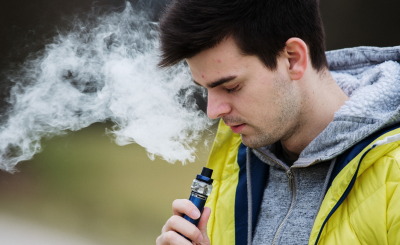Tag: healthy living
-

Fraud Alert: Protecting Yourself from Healthcare Scams
It starts with a phone call, an unexpected email, or even a friendly knock at the door. Before you know it, someone’s after your money or worse, your health information. Scams have gotten bolder, sneakier and in some cases, dangerously personal. These scams can leave both your health, safety and finances in jeopardy. You can…
-

Headlines, Hashtags, and Health: What to Trust (and What to Skip)
Smart choices start with smart sources. Here’s what to know. When it comes to your health, quality, credible information matters–and not all of it is information equal. Today, more people are turning to social media platforms like TikTok, Youtube, and even AI tools like ChatGPT to answer their health questions. While they can sometimes be…
-

7 Ways to Prepare for Your Annual Physical
Your annual check-up is for you. Here’s how to make it count. Your annual physical is one of the best times to focus on your long-term health. Unlike sudden illnesses, this visit is entirely about your health goals, concerns, and preventative measures. It’s a chance to check in on your overall well-being, catch potential issues…
-

Fact vs. Fiction: Summer Safety Myths and Tips
Summer is a great time to be active and get outside, especially if you have kids. But between the heat and increased UV radiation, summer also comes with increased health risks. Whether you’re heading outdoors for fun or fitness, it’s important to make sure your summer habits are helping–not hurting–your health. Unfortunately, the last few…
-

Know Your Gut: Colorectal Cancer Awareness and Early Detection
Colorectal cancer is one of the most common cancers in the U.S., yet it’s also one of the most preventable. With early detection and lifestyle changes, you can dramatically lower your risk. Colorectal cancer is often diagnosed at advanced stages when treatment options are limited, so, the most important step you can take is to…
-

The Importance of Sleep for Your Physical and Mental Health
Why Sleep Deserves More Attention Sleep is often the first thing we sacrifice when life gets busy. But research confirms that sleep isn’t just about feeling rested—it’s a biological necessity that impacts nearly every system in the body. Poor sleep has been linked to increased risks of heart disease, a weakened immune system, and weight…
-

15% of Maryland High Schoolers Vape – What Parents Should Know
Vaping among youth has declined in recent years, but it remains a significant health concern. Many parents believe that the worst of this trend has passed, but recent data is more complex. The 2024 National Youth Tobacco Survey reports that approximately 1.6 million middle and high school students currently use e-cigarettes, with 87.6% preferring flavored…
-

Dr. Ariel Warden-Jarrett on Good Day DC to Discuss Flu and Cold Prevention
Dr. Ariel Warden-Jarrett Featured on Good Day DC to Discuss Flu and Cold Prevention Dr. Ariel Warden-Jarrett from MPCP’s Bowie office joined Fox 5 DC to share expert tips to avoid cold and flu this fall—just in time for the holidays! Catch the full segment from Good Day DC with Steven Chenevey and learn how…
-

Dementia Prevention: It’s Never Too Early (or Too Late) to Start
More than 55 million people worldwide live with dementia, a figure expected to nearly triple by 2050, with 10 million new cases each year. Dementia is one of the leading causes of disability and dependency among older adults globally. It can be overwhelming for patients, families, and caregivers, with significant physical, emotional, and financial impacts….












